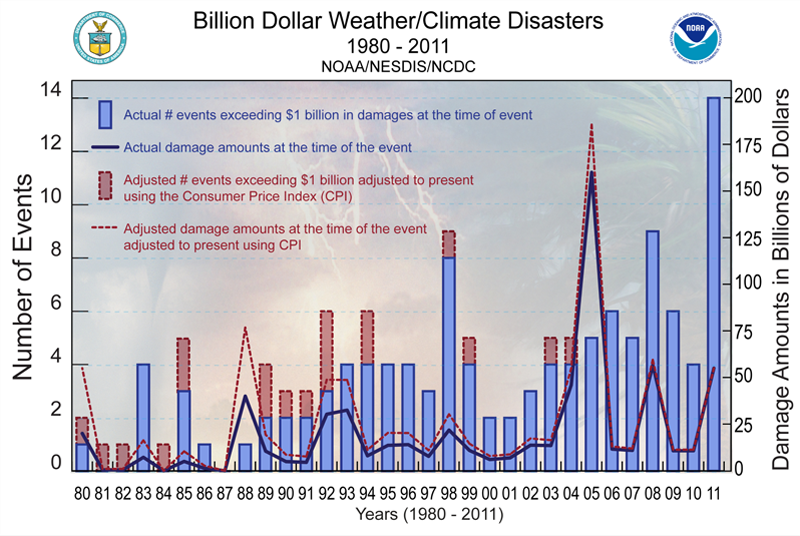Does the recent warm spell over the eastern half of North America reflect climate change induced by increased greenhouse gases? When Europe experienced an extreme heat wave in 2003, two scientists at the Potsdam Institute for Climate Impact Research began a study to see if that event could be related to global warming. Dim Coumou and Stefan Rahmstorf have published an article entitled, A Decade of Weather Extremes, published in Nature Climate Change, cataloguing extreme weather events since the year 2000 including the European heat wave, the drought and heat wave that hit the American Mid-West and Southern Plain States in 2011, the rain and flooding events that struck Pakistan and Thailand in 2010, the tropical cyclone of 2007 in Oman and others.
In their conclusions the scientists stated that no single weather event proves that we are experiencing human-induced global climate change. But the frequency of unusual weather events may be an indicator of a shift away from normal climate patterns. In their cataloguing of extreme weather events one thing became exceedingly clear. The Earth is experiencing more extreme weather events than at any time in recorded history and that the events are more extreme – heavier rain and flooding, more violent storms, larger and more frequent tornadoes, and more prolonged droughts and heatwaves.

Coumou and Rahmstorf’s data shows that globally we are experiencing three times higher monthly heat records in the 21st century than at anytime in our past. Like other climate scientists they recognize that local weather variation is not proof of global warming, but the pattern that is emerging suggests something is happening with the most likely variable in the climate model being us. We are the influence that is causing global temperatures to rise. And when the atmosphere gets warmer, weather gets more active and weather events become more extreme. So although we cannot unequivocally state that extreme weather reflects climate disruption, we can see cause…not certainty….but high probability.








